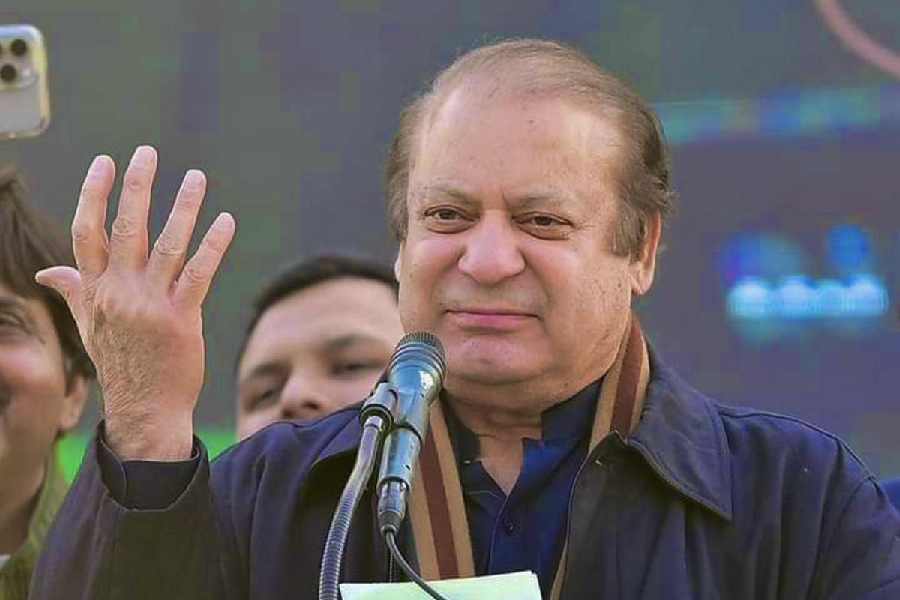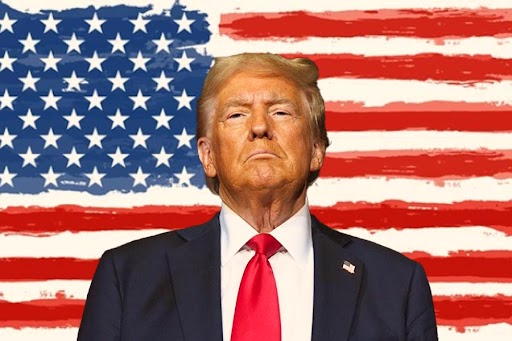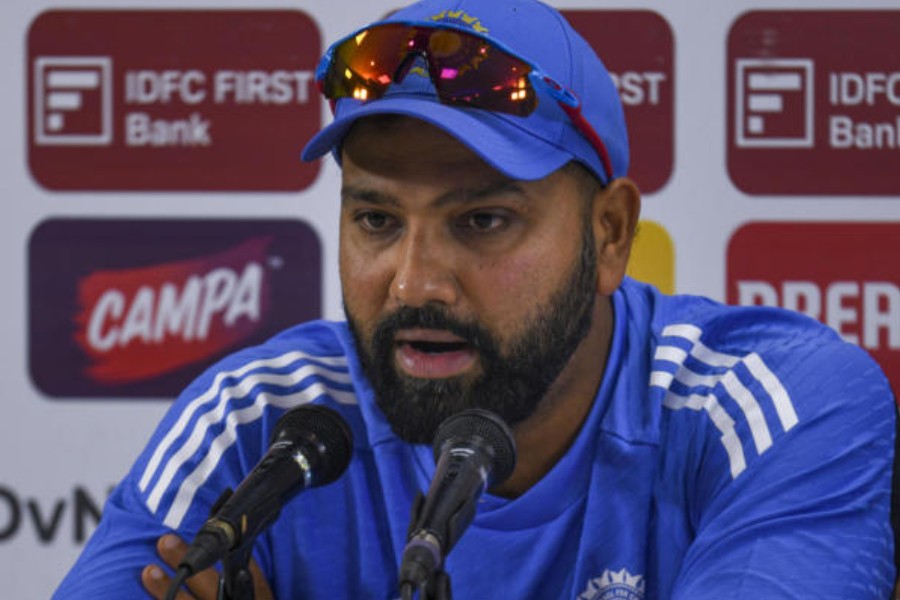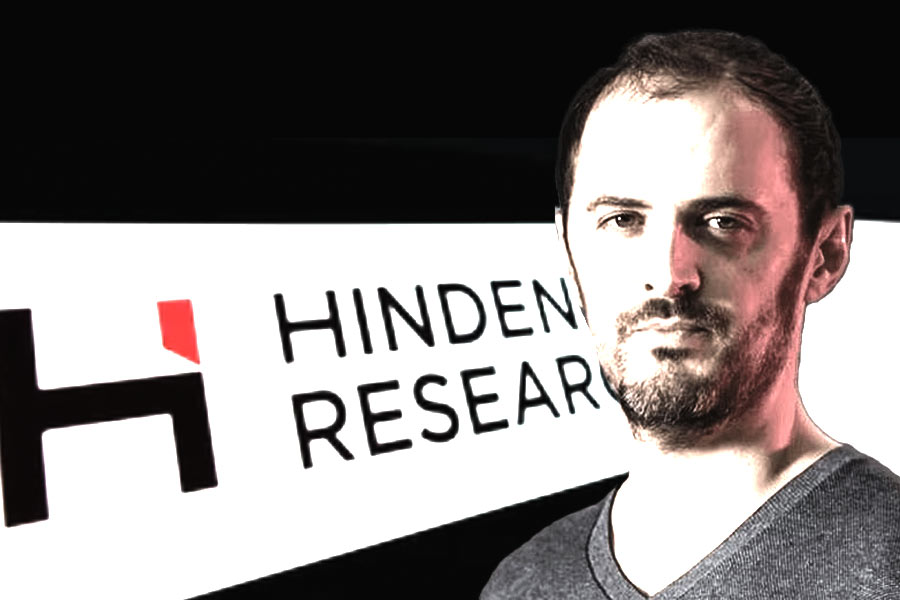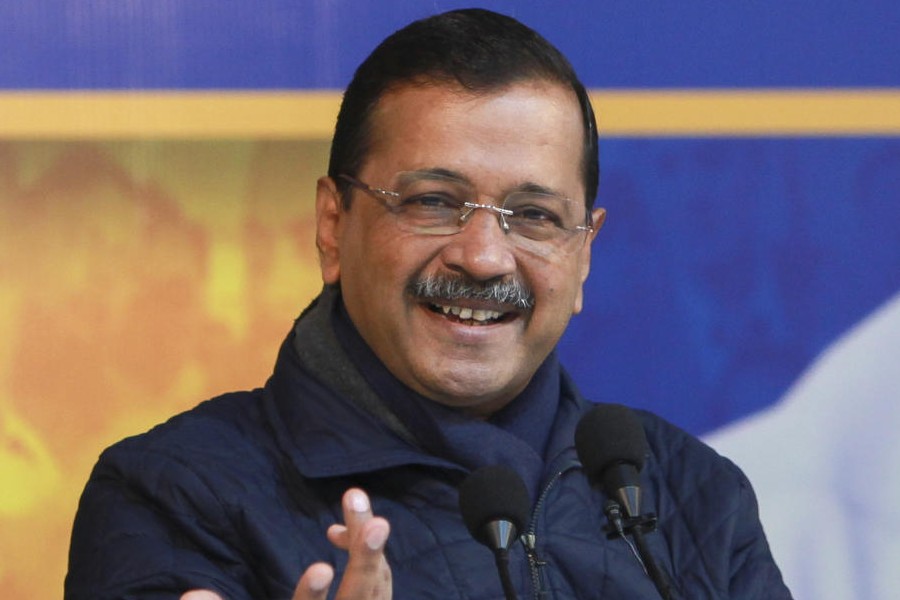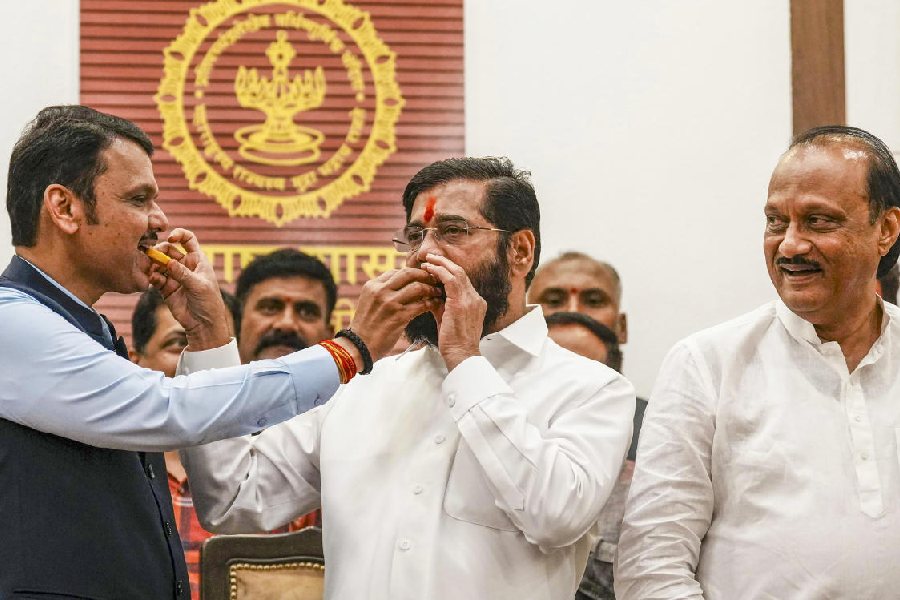India and Pakistan should "bury" the past and look ahead to live like good neighbours, former Pakistan Prime Minister Nawaz Sharif said on Thursday, describing the Indian foreign minister's trip to Islamabad this week to attend a conclave of the SCO bloc as an "opening".
In an interaction with a group of Indian journalists, the three-time former prime minister and president of the ruling Pakistan Muslim League (N) said he was not happy with the "long pause" in the ties and hoped that both sides would look ahead with a positive approach.
Jaishankar travelled to Islamabad on Tuesday for a nearly 24-hour trip to attend the conclave of the Shanghai Cooperation Organisation (SCO), becoming the first Indian foreign minister to visit Pakistan in the last nine years amid continuing strain in ties.
"This is how things should go ahead. We would have liked PM Modi to come but it was good that the Indian foreign minister came. I have said before that we must pick up the threads of our conversation," said Sharif, the elder brother of Pakistan Prime Minister Shehbaz Sharif.
"We have spent 70 years in this way (fighting) and we should not let this go on for the next 70 years... Both sides should sit down and discuss how to go forward," he said. "We can’t change our neighbours, neither can Pakistan nor can India. We should live like good neighbours." There was no bilateral meeting between the Indian and Pakistani foreign ministers on the sidelines of the SCO conclave. For New Delhi, the trip was to attend the multilateral meeting.
However, some senior functionaries in the Pakistani establishment are projecting the Indian minister's visit as an "ice-breaker".
Following a series of terror attacks on India by Pakistan-based terror groups in 2016, New Delhi decided not to hold any bilateral dialogue with Islamabad saying talks and terror can't go hand-in-hand.
Sharif described Jaishankar's trip to Islamabad as an "opening" and a positive step.
When asked whether a bridge builder between the two countries was required, he said, "that is the role I am trying to play." "We should not go to the past and should look at the future. It would be better if we bury the past so that we can use the potential between the two countries," Sharif said.
"I think it (Jaishankar's visit) is an opening and it must be taken forward," he said.
Sharif also recalled Prime Minister Narendra Modi's surprise stopover in Lahore on December 25, 2015, on his way back from Kabul.
"It was very kind of PM Modi-ji to visit Pakistan. He came and met my mother. These are not small gestures, they mean something to us, especially in our countries. We should not overlook them," he said.
Sharif held former Pakistan prime minister Imran Khan for deterioration in relations between the two countries and especially referred to certain comments made by the cricketer-turned-politician against Prime Minister Modi.
"Imran Khan used words that destroyed the relationship - as leaders of the two countries and neighbours, we should not even think, let alone utter such words," he said.
In his remarks, the former prime minister also pitched for the resumption of cricketing ties between India and Pakistan and even said that he would like to travel to India if the two teams play in the final of any major tournament in the neighbouring country.
"What do we gain by not sending teams to each other’s countries? They play all over the world, but it is not allowed in our two countries," he said.
When asked if India should send a team for the Champion’s trophy to be held in Pakistan in February, he said, "you have spoken what's in my heart." Sharif also underlined the importance of having trade ties between the two sides.
"Maybe my thinking is different from others, but I believe we are a potential market for each other. Why should Indian and Pakistani farmers and manufacturers go outside to sell their products," he said.
"Goods now go from Amritsar to Lahore via Dubai- what are we doing, who is benefitting from this? What should take two hours now takes two weeks," he said.
The ties between India and Pakistan came under severe strain after India's warplanes pounded a Jaish-e-Mohammed terrorist training camp in Balakot in Pakistan in February 2019 in response to the Pulwama terror attack.
The relations further deteriorated after India on August 5, 2019, announced the withdrawal of special powers of Jammu and Kashmir and the bifurcation of the state into two union territories.
The trade ties between Islamabad and New Delhi have remained suspended since 2019 due to the imposition of heavy duties by New Delhi on imports from Pakistan after the 2019 Pulwama attack".
Except for the headline, this story has not been edited by The Telegraph Online staff and has been published from a syndicated feed.

